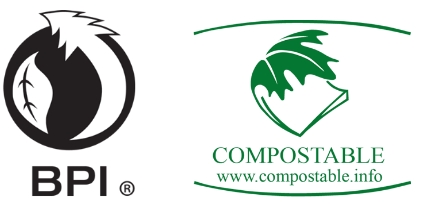You probably know that compost can help plants grow, but did you know that it also helps the environment? Or that it helps reduce landfilling? Read on to discover the many things compost can do and how you can help!
…reduce greenhouse gas emissions!
Because it doesn’t release any harmful methane, composting is kinder for the planet than landfilling.
…divert waste from our landfill!
Keeping organic waste out of landfill means that landfill cells last longer and require less space, saving taxpayers’ money and reducing impact on the environment.
…turn regular soil into super soil!
Compost restructures soil to better retain moisture and acts as a natural fertilizer by introducing microorganisms and nutrients.
…absorb carbon from the atmosphere!
Compost literally pulls carbon from the atmosphere and stores it in the soil. Can it be any more incredible?!
HOW CAN YOU HELP
(GET GREEN SORTING!)
It’s easy to contribute to Eco360’s composting program and play your part in helping the environment! Simply start sorting your waste and putting organics in the green bags. Organics bags are collected curbside every week. Simply sort, sit back, and let us do the rest!

How does Eco360 turn your organics into quality compost?
It gets collected
Once you’ve done your part carefully sorting your organic waste, garbage trucks will collect your green bags at the curb and transport them to our solid waste facility in Berry Mills.
It's dropped off
The trucks are weighed when they arrive and the organics are dumped inside our Compost Facility.
We screen out contaminants
We know you’ll have done a diligent job sorting your waste, but some contaminants may slip through. Our machinery opens the bags, removes large contaminants, and screens out metals.
We start processing… indoors!
It may sound funny, but most of the processing that turns organics into compost is done indoors. Here, we carefully monitor compost piles, add water and air as needed, and mix them to help along the composting process.
We screen again and test for quality
The compost is further screened to remove any remaining contaminants then piled outside to mature. Once mature, samples are sent to a lab for analysis to ensure the final product meets CCME Category A quality requirements.
A full 360!
The sale of our high-quality compost generates funds that are reinvested into our operations, helping to cover the costs of machinery, maintenance, and staffing. It’s a perfect 360-degree process!
What makes Eco360 compost special?
We produce a Category A type compost per the CCME Guidelines for Compost Quality which means our compost can be sold to the market. Eco360 is a proud member of the Compost Quality Alliance as administered by the Compost Council of Canada, providing an assurance of quality control through peer review of composting processes.
Eco360 compost in action!
Every year, we conduct a compost trial project where we use different compost-to-soil ratios in garden boxes and evaluate the results.



